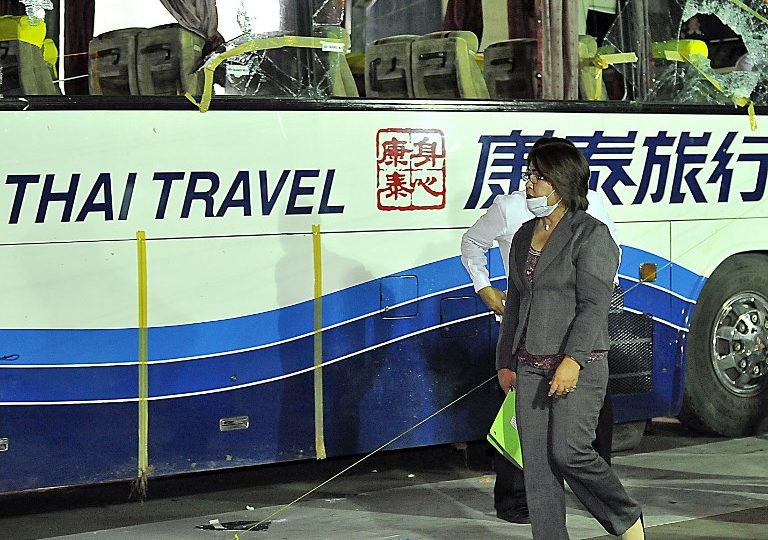Yesterday, Philippine President Rodrigo Duterte apologized to Hong Kong for the 2010 hostage crisis in Manila that left eight tourists from the Chinese special administrative region dead.
Speaking to the Filipino community in Hong Kong, Duterte addressed himself to the Chinese government and noted there has been no “official apology” from the Philippine government over the incident, which triggered a diplomatic row between Manila and Hong Kong.
“Let me, for the first time, the Chinese government and the people of China have always been waiting for this. There has been no official apology coming from the Philippines regarding that incident that happened in August 2010,” Duterte said.
“To the Chinese people who are here, from the bottom of my heart, as President of Republic of the Philippines, may I apologize formally to you now. We are sorry the incident happened, as humanly possible, I would like to guarantee this will never happen again. This will go a long way to really assuage the feelings of the Chinese people.”
Former President Benigno Aquino III had just assumed his post in 2010 when the hostage crisis happened, wherein a disgruntled dismissed cop, Rolando Mendoza, held hostage Hong Kong tourists inside a bus.
The whole incident was aired live on television, putting the public at the edge of their seat and exposing weaknesses in the country’s police force.
The crisis ended with Mendoza and eight Hong Kong tourists dead.
Aquino refused to apologize for the incident, saying the act of one hostage-taker should not be construed as the act of the entire nation.
The incident seriously harmed ties between the Philippines and Hong Kong, with the latter canceling visa-free entry for Philippine officials and diplomatic passport holders over the unmet demands of families of the victims.
Ties between the Philippines and Hong Kong improved slightly after Manila Mayor Joseph Estrada apologized on behalf of the Philippines in 2014. Estrada was not yet the city mayor when the hostage crisis took place.
with minor edits




